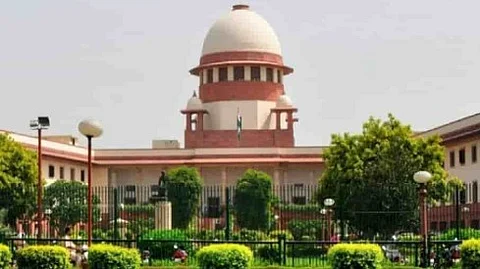

The Goa government has approached the Supreme Court, challenging the High Court of Bombay at Goa’s order dated June 23, 2025, which quashed the Outline Development Plans (ODPs) for five villages in North Goa. The High Court had also directed the State to revert to the Regional Plan 2021 for granting planning permissions and approvals.
The Special Leave Petitions (SLPs) were registered in the Apex Court on July 15 and are scheduled for hearing on Monday. The Supreme Court, however, declined to stay the two High Court judgments — one related to Section 17(2) of the Town and Country Planning (TCP) Act concerning zoning changes, and the other regarding the ODPs of Calangute-Candolim and Arpora, Nagoa, and Parra.
A bench comprising Justice Vikram Nath and Justice Sandeep Mehta issued notices and posted the matter for hearing on August 26. Meanwhile, the Court directed that status quo be maintained. This effectively halts all construction activities related to the issues under challenge until the Supreme Court disposes of the appeals.
The judgment regarding Section 17(2) was delivered on March 13, 2025, by Justices M S Karnik and Nivedita P Mehta. It read down Section 17(2) of the TCP Act and quashed the rules framed to operationalise it. Under this provision, zoning conversions had been approved over an area of 26.5 lakh square metres.
The judgment on the ODPs was passed on June 23, 2025, by Justices Bharati Dangre and Nivedita P Mehta. The Court held that the ODPs for the villages of Calangute, Candolim, Arpora, Nagoa, and Parra were not legally applicable, ruling that the Executive Order dated August 22, 2024—issued by the State government—was contrary to the TCP Act and therefore invalid. This decision impacted approximately 16 lakh square metres.
Senior Advocates Dr S Murlidhar, former Chief Justice of the Odisha High Court, and Shoeb Alam appeared for the Goa Foundation in the two 17(2)-related appeals filed by the State and the TCP Department.
The SLPs filed by the government name over 60 respondents, as the High Court rulings arose from a batch of writ petitions and Public Interest Litigations (PILs), including those filed by the Goa Foundation.